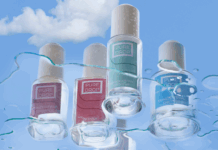The European Union has banned the use of D5 silicone in personal care products from 2027. Brenntag Beauty & Personal Care and Seneca Polytechnic are collaborating to investigate possible alternatives, focusing on antiperspirants and deodorants, hair care and skin care applications.
The German Brenntag Group is a global specialist in the distribution of chemicals and ingredients. Seneca Polytechnic is a Canadian teaching and research institution.
The joint research project is made possible by an applied research and development grant from the Natural Sciences and Engineering Research Council of Canada.
The replacement of D5 silicone represents a significant challenge for formulators due to its unique properties in end-use applications. The project aims to evaluate the physicochemical properties of various D5 substitutes in key end-use applications, with the aim of identifying how different options perform in these applications, leading to the development of a responsive guide and substitutes roadmap for customers.
Maia Navarrete, Senior Director Personal Care Americas at Brenntag Specialties, commented: "As part of our expanding innovation and application program, this fundamental research project with Seneca Polytechnic will support the growth of our customer base by offering safe and sustainable alternatives to D5 silicone, meeting their compliance needs in key end-use applications such as antiperspirants and hair conditioners. Customers will benefit from invaluable formulation support to guide them through different compensation options based on their end-use applications."
"Market forces drive innovation, and this project gives Seneca Polytechnic students the opportunity to participate in groundbreaking research and learn about the industry's need to adapt to market changes, said Ben Rogers, the school's Dean of Research. The Seneca Centre for Innovation in Life Sciences was created to help industry respond to changing market demands, while enabling students to apply their technical expertise to solving real-life problems. This project illustrates the added value of SCILS.







